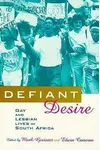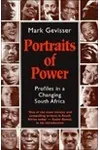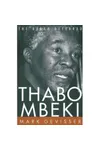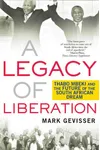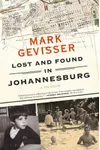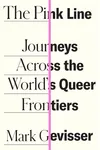Picture a South African storyteller who weaves personal journeys with global human rights battles—meet Mark Gevisser! Born in 1964 in Johannesburg, this celebrated author and journalist has become a powerful voice for LGBTQ+ issues, blending raw narratives with sharp geopolitical insights. His acclaimed book, The Pink Line: Journeys Across the World’s Queer Frontiers, maps the divide between acceptance and oppression, making him a must-read for anyone curious about identity and justice.
Gevisser’s work doesn’t just tell stories; it challenges the world to see queerness through a fresh, empathetic lens. With a career spanning decades, he’s tackled everything from apartheid’s legacy to global culture wars, all with a storyteller’s heart and a journalist’s precision. Ready to dive into his world?
The Making of Mark Gevisser
Born into a family of Lithuanian Jewish heritage in apartheid-era Johannesburg, Mark Gevisser grew up in a world of stark divides. He left South Africa to study at Yale, graduating magna cum laude in comparative literature in 1987. In New York, he cut his teeth as a journalist for outlets like Village Voice and The Nation, immersing himself in feminism, gay rights, and AIDS activism. Returning to South Africa in 1990 as the nation transitioned from apartheid, he dove into journalism, co-editing Defiant Desire: Gay and Lesbian Lives in South Africa and helping organize the country’s first Pride March.
Mark Gevisser’s Unforgettable Stories
Gevisser’s writing is a masterclass in blending the personal with the political. His 2020 book, The Pink Line: Journeys Across the World’s Queer Frontiers, is a landmark work, tracing the global fight for LGBTQ+ rights through intimate stories from nine countries. From a trans Malawian refugee to a lesbian couple in Cairo, Gevisser’s empathetic prose reveals the triumphs and struggles along this ‘pink line’—a frontier dividing acceptance and persecution.
Other key works include A Legacy of Liberation: Thabo Mbeki and the Future of the South African Dream, a political biography exploring South Africa’s post-apartheid challenges, and Lost and Found in Johannesburg: A Memoir, a poignant reflection on his hometown and identity. His style—vivid, research-driven, and deeply human—makes complex issues accessible, whether he’s writing about queer rights or South African politics.
Gevisser’s journalism, published in The Guardian, The New York Times, and Granta, complements his books with incisive commentary on culture and identity. His ability to connect individual lives to global movements sets him apart as a storyteller who doesn’t just report but transforms how we understand the world.
Why Mark Gevisser Matters
Mark Gevisser’s impact lies in his fearless exploration of identity and justice. Through The Pink Line, he’s given voice to queer communities worldwide, highlighting their resilience amid culture wars and political backlash. In South Africa, his work has illuminated the gap between progressive laws and societal realities, advocating for change. His storytelling bridges divides, fostering empathy and understanding in a polarized world.
Globally, Gevisser’s books and essays have sparked conversations about human rights, making him a vital figure in both literature and activism. His nuanced perspective—shaped by his own experiences as a gay man and his global travels—challenges readers to rethink assumptions and embrace complexity.
- Born: 1964, Johannesburg, South Africa
- Key Works: The Pink Line, A Legacy of Liberation, Lost and Found in Johannesburg
- Awards: Alan Paton Award for Thabo Mbeki: The Dream Deferred
- Notable: Helped organize South Africa’s first Pride March in 1990
Snag The Pink Line and dive into Mark Gevisser’s world of gripping stories and global insights—you’ll see the world through a queer, compassionate lens!
